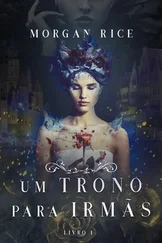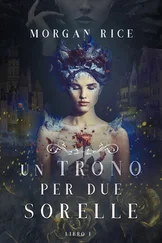The musculature of the buttocks and thigh was, I think, reasonably well and accurately drawn but, such was its detail, that when I came at last, in a state of trembling excitement, to apply oil paint to it, I was all too aware that I had no idea whatsoever how to render shadow and light (and thus the third dimension) in this medium and, although I worked at it for hours and long into the night, my picture was an utter failure, resembling in the end a garish still-life of a plate of bacon and scrambled egg. I took off my floppy hat and smock and withdrew, this time to my bed, where I was forced to gnaw upon my sheet to stop myself shedding tears of frustration and rage.
The next day, a brilliant idea came to me. If I could execute parts of the body quite competently, it would surely be within my power to draw a body in its entirety, particularly with the help of a model.
After breakfast, I called for my horse, Danseuse (another gift from the King), and rode up the hill to the village of Bidnold and knocked on the door of the Jovial Rushcutters, a nice little inn I was in the habit of visiting from time to time, when in need of rough conversation and the smell of beer, tobacco and spittle.
The barmaid of the Jovial Rushcutters was one Meg Storey who, in her manner and in the teasing fullness of her breasts, slightly resembled Rosie Pierpoint, and to whom, in consequence, I was involuntarily drawn. I now managed to flatter Meg Storey sufficiently – with praise and promise of silver -for her to agree to coming to my Studio to pose for me. Not, I assured her, naked, but prettily draped with scarves and sashes and wearing quite possibly a posy of geraniums in her hair, thus giving me access to my reds, which I had used to baleful excess in the man's thigh, but without which I could not imagine any picture of mine succeeding.
She arrived on a rather chilly September morning. At the sight of me in my smock and hat, she let out a hoot of derisive laughter. I was further discomforted by her complaints, as she took off her cloak, about the cold and sunless nature of my Studio.
"It faces, as it must, north," I said, beginning to sharpen my piece of charcoal. "Artists must work in a northerly light."
"Why?" asked Meg Storey.
I looked up. I did not wish to admit to this saucy tavern jade that I had not the least idea. "Because," I snapped, "a north light is cruel."
After a great deal of shivering and protesting, Meg Storey agreed to remove everything but her drawers, sat down on a tall chair and allowed me to drape a magenta scarf around her neck to fall flatteringly over one of her large, bright-nippled breasts. I stood back. Her hair was sand-coloured, not unlike my own, but a deal finer and silkier. She looked exceedingly pretty. I felt my enthusiasm for my picture grow. Now I understand, I told myself, what the Flemish masters felt as they prepared to render their voluptuous Dianas, their fleshy shepherdesses…
I began to sketch in Meg Storey's neck, shoulder and right breast. At her waist, the drawers began, but I ignored them. In my knowledge of the form of the female leg, of the degree of fatty tissue in the upper thigh, I was able to depict what was, in fact, invisible to me. I was now excited by my work to such a degree that I felt my loins grow hard and had to force out of my mind, as I drew her hand, a sudden image of it flaying my bottom with its little pearly nails. Luckily, the size of the canvas and the voluminous nature of my smock prevented Meg Storey from witnessing any arousal in me, and for two hours or more she sat obediently still, despite the cold.
At mid-day, she had to leave to serve dinner at the Jovial Rushcutters. I pressed a florin into her palm and asked her to return the following morning. I made no attempt to touch her, though the urge in me to do so was very strong. Art, I told myself, must be put before beastliness.
But I couldn't stay away from my picture. Even on my return from an excellent supper with my neighbour, Lady Bathurst, at a very late hour, I went at once to my Studio and lit several lamps and stared at my drawing of Meg Storey and felt myself greatly pleased by it. It was a relief to see, reasonably well drawn, an entire body and not bits and pieces of it. Art, I thought picturesquely (and with a metaphysicality worthy of Pearce), will make me whole, where before I was but half made up.
The next morning dawned sunny, thus slightly altering the light in my studio. I had spent a peevish night trying to decide which pigments to use and in what quantities in order to achieve the exact colour of Meg Storey's neck, her hair, her heel, her nipples. I longed with such envious longing to put onto my canvas something that was more than a mere portrait of Meg Storey. I wanted to capture in colour her very essence , so that anyone seeing my picture would be able to "see" her, exactly as she is, both beautiful and vulgar, and these two opposing conditions conflicting in her with such subtlety that one's perception of her is a constantly changing thing. But how was I to do it?
I stood at my easel exhausted and downhearted. How can you capture in a medium which is static that which is constantly moving and altering? I began, without confidence, to mix my pigments. Meg's nose, I noticed, was red ("From the cold I caught, sitting here, Sir Robert"), so I thought I would start with that and work outwards. At once, I could see, I had made a bad decision. You do not, if you are striving for the essence of something, begin with a small detail. I darted to the nipple and painted that. Now, my canvas had two lifeless red spots upon it. Quickly, I mixed some umbers, vermilions and browns and began to colour Meg's hair. Again, there was no light upon it or life within it, and I began to understand now that I simply did not have the technique to paint a tolerably pretty picture of Meg, let alone a portrait that would reveal her essential nature and being.
I put down my brush. I picked up Meg's shawl and put it round her and told her sadly that I would pay her to return at some future date, when I had taken some lessons in becoming an artist.
I believe I might have succumbed, after this first ignominious flop in my chosen field, to a bout of sadness, had it not been for the kind attentions of my neighbour, Lady Bathurst.
Let me describe the Bathursts to you.
Bathurst is a hunting man. He is past his seventieth year and his memory parted from him in his sixty-eighth, when his horse threw him in the field and trod on his ear, through which orifice his mind dribbled away. He wears aged green clothes which are seldom cleaned, and so carry with them the stench of saddle soap, tobacco and boiled pudding. Of his wife's name, which is Violet, he has lost all remembrance and has been heard to enquire at the dinner table: "Who is that woman? Do I know her?" But if you imagine him confined to bed, or even to his room, you would be wrong. Every morning, he is hoisted onto his horse and with his greyhounds and terriers rampages about his fields and forests running to their death hares, foxes, badgers and even stags. The walls of his great hall are hung with game-keepers' poles, hunting whips, the skins of foxes, badgers and marten cats and the heads of deer, its floor strewn with marrow bones for his dogs, which are kennelled there and do their business all over the parquet.
I am fond of Bathurst. His claret is excellent and his table manners worse than mine. His conversation is pure drivel, but spoken with a perpetual passion, emphasised by his constant farting and thumping of the table. Though his memory has left him, his spirit has not. His friends, he tells me, have deserted him; he does not know who they were or why they have gone, but he senses a void, a vacancy, where once there was conversation and laughter, and seems delighted that I should be there to fill it up a little. Confusingly, he appears always to remember my name, or rather his own Anglicised version of if. Merryvale. "Welcome, Merryvale!" he thunders, across the braying and barking of the dogs. "Welcome and Good Cheer and Devil take the Laggards and the Hindmosts!"
Читать дальше











